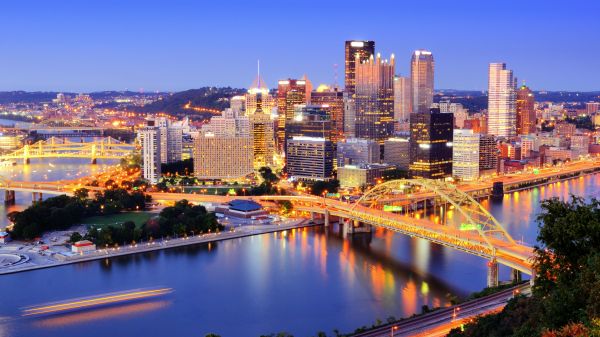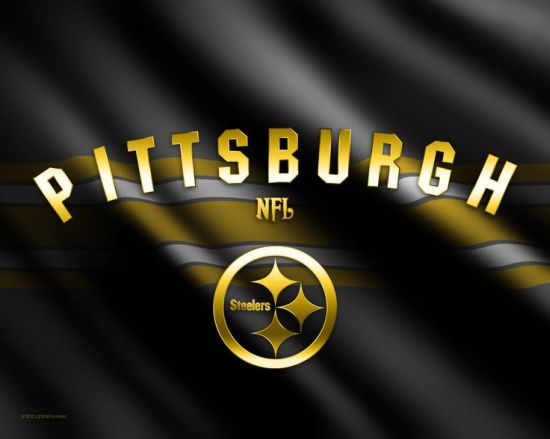
About 10 miles from where I was born is a small town called Coulterville. The locals refer to the community as Coulter.
My home town is Sutersville, PA., pop. 950. Coulter is much smaller than that. It has several things going for it. Some of the best pheasant hunting in the State of Pennsylvania is available at Guffy's Hollow within walking distance of the town limits.
A railroad track runs through the center of town separating the 30 or so old houses, some of which were constructed by coal miners before the Depression. The biggest, most delicious blackberries in Western Pennsylvania grow there. The town, especially an old church building, is supposed to be haunted.

And, most important, Coulter is the home town of a legendary Irish athlete named Andy Rooney who parlayed a single week's winnings at the race tracks into owning the Pittsburgh Steelers' franchise and part ownership of the Pittsburgh Penguins.
Rooney is one of the most popular sports figures Pennsylvania has ever produced. After an unbelievably lucky winning steak at the race tracks in New York -- he had gone there to watch Seabiscuit run -- Rooney used $2,500 of his winnings to buy the NFL franchise of the future Pittsburgh Steelers. He used the rest of what he won to pay his coaches, players and other expenses until the franchise started making money.
Before his death at age 87 on Aug. 25, 1988, Rooney had his hand in many business enterprises, including the Pittsburgh Penguins hockey team, Yonkers Raceway, Palm Beach Kennel Club in West Palm Beach, FL. and three other thoroughbred horse and greyhound racing tracks.
This all came from the most humble of beginnings. His father was a saloon keeper and his mother was a coal miner's daughter whose family worked in the mines along the Youghiogheny and Monongahela rivers where mines like Warden and Ocean shipped their coal by barge.
Andy Rooney was the product of Irish immigrants who settled in Canada and the United States after the Irish potato famine ravaged Irland in the 1840s. His father Dan Rooney settled down in Coulter and opened a saloon. He fell in love with Margaret 'Maggie' Murray, and Andy came into the world on Jan. 27, 1901.
The family moved to Pittsburgh's North Side in 1913. Dan Rooney was a frugal man who knew how to save money. He invested in a three-story building at the corner of Corey and General Robinson Street where he opened a restaurant and bar on the first floor. The building was less than a block from Exposition Park which served as the home field for the Pittsburgh Pirates until 1909. The family lived above the bar-restaurant.
Rooney attended St. Peter's Catholic School in Pittsburgh, Duquesne University Prep School and Indiana Normal School. He turned into an outstanding athlete and won an athletic scholarship that paid his way into Georgetown University.
Nothing in life was more important to Andy Rooney than sports. While he enjoyed football and tolerated hockey, he tackled all sports with the same gusto that he tackled life. He won an AAU welterweight belt in 1918, tried out for the 1920 Olympics and played minor league baseball for the Flint Vehicles in Flint, MI. and the Wheeling Stogies in Wheeling, WV.
His ability on the ball field caught the attention of the team owners and he was promoted to Wheeling's Player-Manager in 1925. He led the Middle Atlantic League in many categories -- hits, runs, stolen bases and games played. Rooney had the second highest batting average in the league and his brother Dan, who caught for the Stogies, finished third.
While baseball was Rooney's number one love, he also played halfback for two semi-pro football clubs, the Pittsburgh Hope Harvey and Majestic Radio. The feisty Irishman, who was rarely seen without his ever present cigar, later took over the teams and named them the J.P. Rooneys.
A lot of gambling existed on Pittsburgh's North Side. Most of it was illegal, but Rooney never backed off from making a wager. He learned how to handicap horses and when he heard the famed thoroughbred Seabiscuit was entered at Yonkers Raceway, he had to go to see the horse run.
What happened next almost defied the belief of the sports world, including the people who were there like his friend Tim Mara, owner of the New York Giants. Mara was also a well known bookmaker whose face was familiar at Monmoouth Park, Pimlico, Jamaica and Belmont.
The day of the race was July 24, 1937. Rooney had actually gotten off to a good start on the horses two months earlier when he traveled to Belmont and acted on a tip Mara gave him on Fly Me, a horse that went off at seven to one odds. Rooney plunked $1,000 on the animal's horse and Ffy won the race wire-to-wire, returning over $8,000.
Red Smith, a syndicated sports writer, years later interviewed Rooney to find out what really happened on that day in 1937 and the following events that helped create the Rooney legend.
According to Smith, Rooney followed up his win on Fly Me by betting back-to-back four to one and five to one shots. Both won, increasing Rooney's bankroll to over $30,000.
Despite the loss, Mara was glad for Rooney. He advised him to quit while he was ahead and go home. The Irishman from Coulter, PA. had no such intention.
'I came here to bet on Seabiscuit,' he reminded Mara, 'and that is what I am going to do.'
He wagered $10,000 on Seabiscuit. Not only did the horse win the race easily, it smashed the track record and paid Rooney $19,000.
In a book called 'Rooney: A Sporting Life,' famed sportscaster Bill Corum said Rooney lost over $30,000 in the next two races. He was still ahead around $20,000 and far from finished. The following day, he drove to Saratoga Springs Race Track. He attended mass at a Catholic Church and visited the stables where he talked with some of the back track people -- jockeys, stable boys and owners.
He also watched the horses being warmed up. Rooney was big on getting information from a horse's body language. On Monday morning before the races started, a freak thunderstorm occurred. A lightning bolt struck a stable, killing one horse and injuring several others.

His first two choices won. Betting $25,000 to $50,000 a race, Rooney parlayed his bets and totally blew the minds of Mara and the sports writers who were following his selections. Rooney won $100,000 on Monday and picked up another $100,000 on Tuesday by selecting four winners in a row.. By the time Rooney was ready to go home, his pockets bulged with over $300,000, or $4.5 million by today's buying power.
Saratoga officials jokingly offered Rooney the services of a Brink's armored truck to help him carry his money home.
A generous man by nature, Rooney sent some of his winnings to a brother in China. He also gave some money to his mother and donated $10,000 to the Catholic Church. With a twinkle in his eye, the Priest reportedly asked Rooney if the donation came from 'ill-begotten ways'.
'Why, no, Father,' said Rooney, removing the cigar from his mouth. 'I won the money at the race track.'
Rooney spent his race track winnings well. He paid $2,500 for the NFL franchise in Pittsburgh and used part of the money to hire a coach named Joe Bach. At the time, the football team was known as the Pittsburgh Pirates, which was the same name as the city's baseball team. After a couple of winning seasons, Rooney changed the name to the Steelers in honor of Pittsburgh's steel industry.
His winnings actually funded the team until 1941 when Rooney sold the franchise to Alex Thompson, a multi-millionaire playboy. After some back and forth, Rooney decided he wanted the team back. When the Philadelphia Eagles ran into financial woes, Rooney stepped in and bought a minor interest in the team.
For the next 30 years, the Steelers did fairly well, even though many of its seasons were losing ones. The team just couldn't seem to beat powerhouse teams like the Cleveland Browns and the Green Bay Packers. The Steelers even gained a nickname in Pittsburgh, 'The Lovable Losers.' It didn't help matters when the team management cut loose Johnny Unitas who would go on to the pro football Hall of Fame with the Baltimore Colts.
In 1972, the Steelers began winning and piled up an incredible 13 winning seasons. Today the Steelers are the only team in the NFL to have won six Super Bowls. After the 1974 season, Rooney's son, Dan, took over the team. Rooney stayed on as board chairman until his death. His remains are buried in the Pittsburgh's North Side Catholic Cemetery.
Andy Rooney was elected to the Professional Football Hall of Fame in 1964. Duquesne University, a Catholic Institute of Higher Learning where I attended a Liberal Arts school and studied journalism, named its football field after him. A statue of Rooney stands at the entrance to Heinz Field, home of the Steelers. And the street that runs adjacent to the field was re-named Art Rooney Avenue.
U.S. Supreme Court Justice Byron White and the late sportscaster Howard Cosell both called Rooney one of the best liked and most respected people in professional sports, with Cosell adding, 'He was one of the best people I ever met.'
Rooney's son, Art Jr., put it this way: 'Dad always told his boys to treat everybody the way we wanted to be treated. He always told me, 'Give other people the benefit of the doubt. But never let anyone mistake kindness for greatness.
'He took the Golden Rule and added a bit of the North Side to it.'
Author: Geno Lawrenzi Jr.
(Geno Lawrenzi Jr. is an international journalist, magazine author and ghostwriter. If you have a unique gambling story to share with him, you may qualify for a cash award. Send your story with all the details to glawrenzi@gmail.com ).
Your feedback
Please enter your comment.
Your comment is added.




